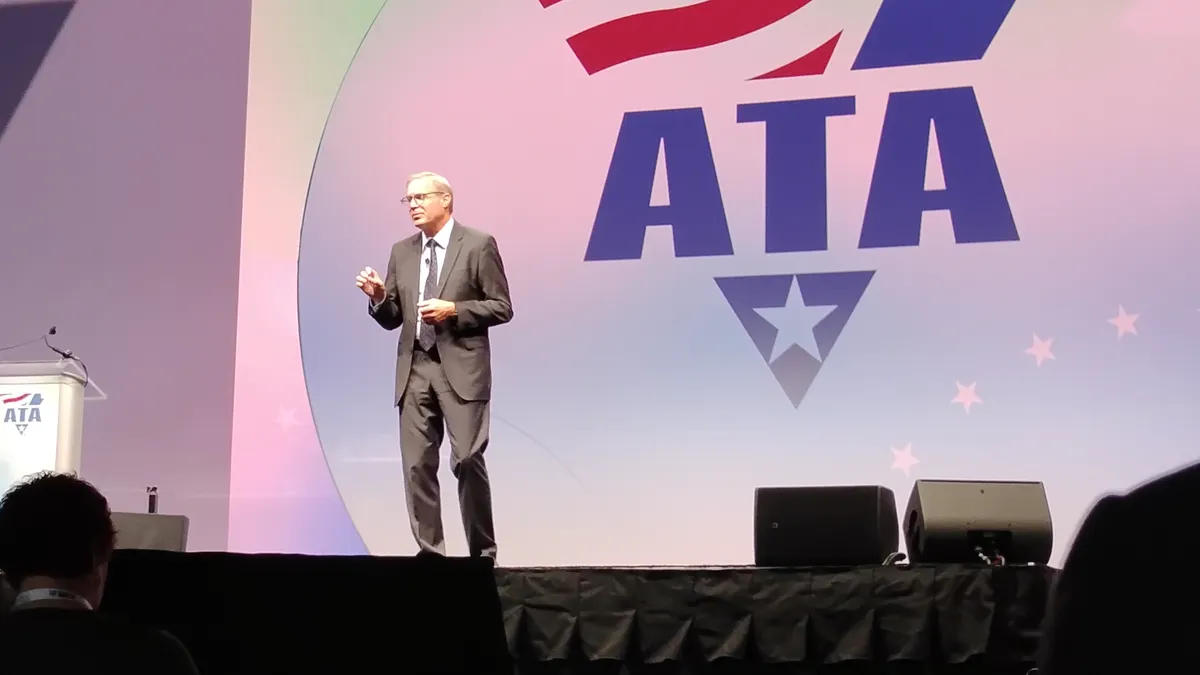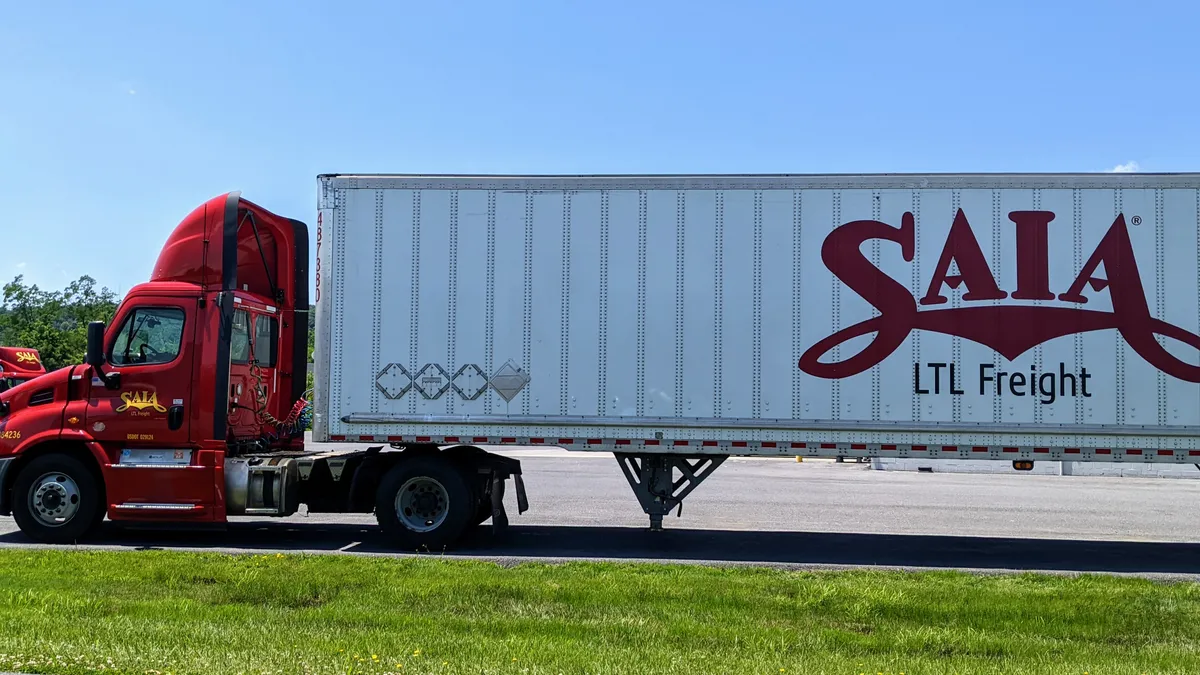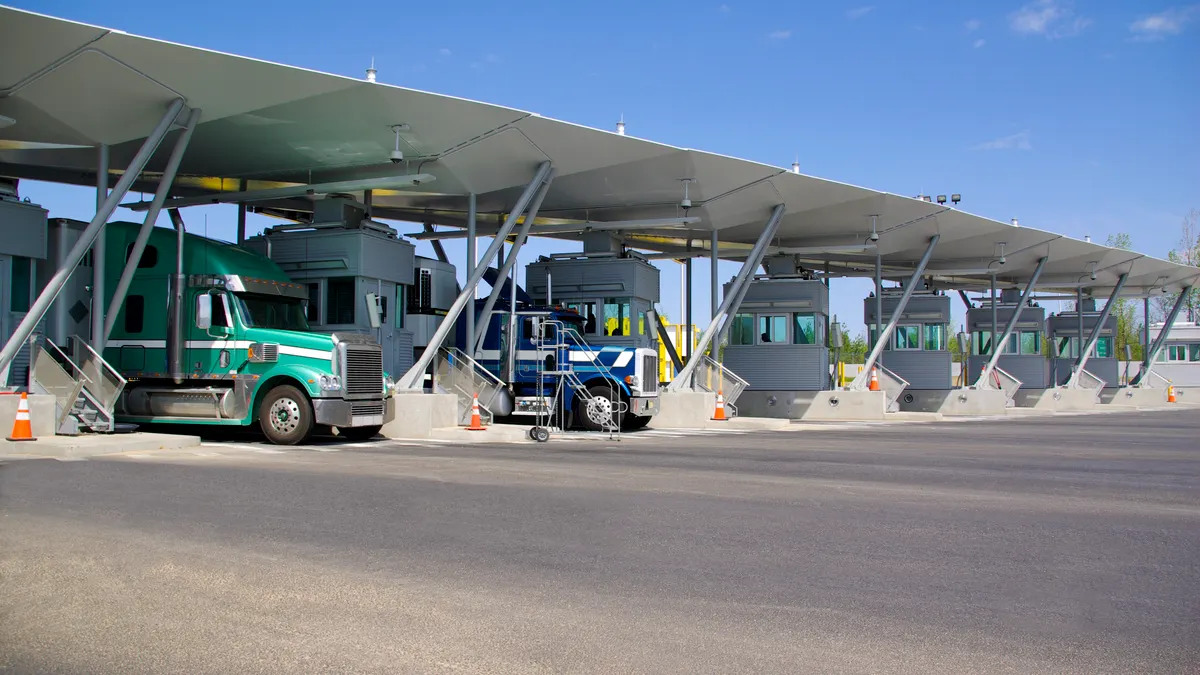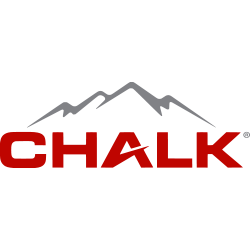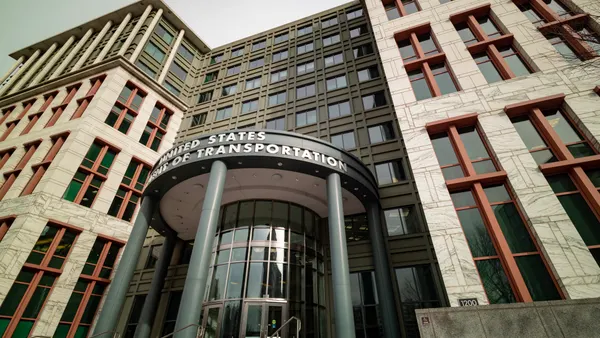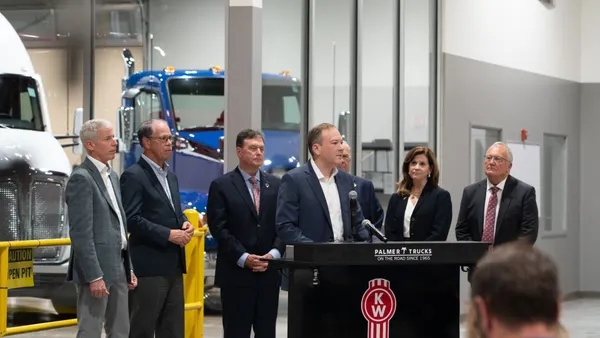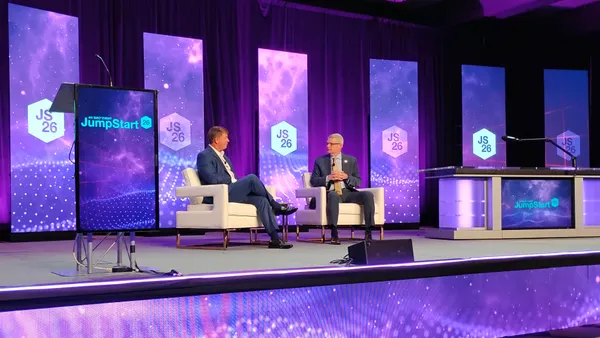SAN DIEGO — The American Trucking Associations remains firm in its opposition toward higher tariffs while hinting that a breaking point could shift the group’s approach, CEO and President Chris Spear said Oct. 27 at the 2025 Management Conference & Exhibition.
The powerful trucking group could change its trade policy strategy with the Trump administration depending on how tariffs affect the transportation industry’s recovery, Spear said during his address at the trucking conference.
“If tariffs continue trucking’s prolonged freight recession, ATA may well consider strategic shifts that address the direct and indirect impacts on our industry,” Spear said. “Stay tuned.”
At a press conference Oct. 28, Spear said that developments in the trade matter can be aided by gaining a further understanding of where the Trump administration is coming from and what tariff rates will ultimately be — as opposed to initial announcements.
“We understand why he's doing this, and it's trying to find that balance in the middle,” Spear said of the president’s tariff policies. As part of that tariff response, the ATA leader further added that the group aims to limit exposure in other areas that affect operational costs for the trucking industry, such as upcoming 2027 nitrogen oxides (NOx) standards and the federal excise tax.
The group has previously noted how tariffs are border taxes that can reduce trucking volumes and cross-border freight, prolong pain for truckers in the midst of an ongoing freight recession and raise prices for consumers, manufacturers and carriers.
“ATA has and will continue to oppose any elevating use of tariffs that adversely impact the movement of freight,” Spear said in the address. He noted the organization’s current strategy allows it to clearly object to the matter while not compromising its gains in other matters on Capitol Hill.
Key trucking industry stakeholders have lamented how moving targets of tariff levels have limited businesses’ ability to plan and move forward.
“We are at 18% tariffs,” ATA SVP and Chief Economist Bob Costello said earlier that morning at the conference, referring to the average rate that the U.S. trade policy is adding to costs. “We have not been there since the 1930s.”
Earlier in the year, many importers rushed to frontload goods to mitigate tariff impacts. But now, higher duties are in place.
“What does that do?” Costello said. “It reduces demand. We're not going to buy as much.”


